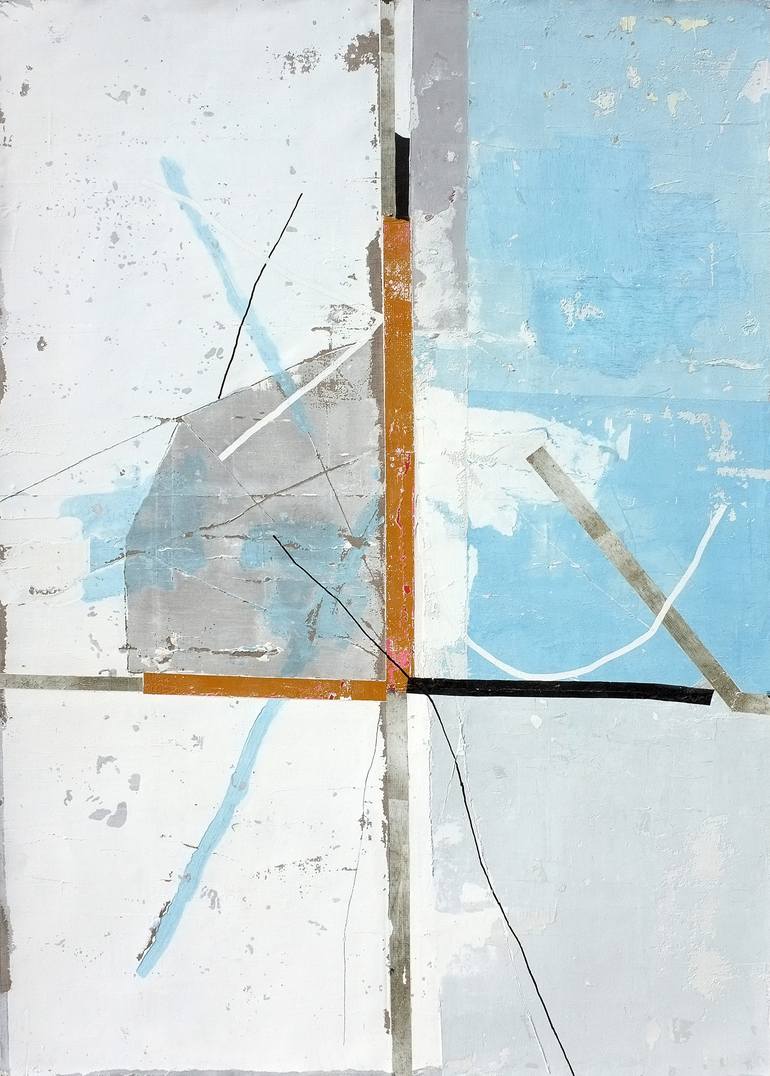







1452 Views
156
View In My Room
Painting, Acrylic on Canvas
Size: 45 W x 64 H x 1.2 D in
Ships in a Crate
1452 Views
156
Artist Recognition

Showed at the The Other Art Fair

Artist featured in a collection
ABOUT THE ARTWORK
DETAILS AND DIMENSIONS
SHIPPING AND RETURNS
Process Before anything else it's important to understand how my system operates. I use matrices to transfer on to canvas the results of my researches. Matrices are panels of plywood which act as stamps. So that what you see on these canvases is the result of a method of haphazard replication w...
Year Created:
2017
Subject:
Styles:
Mediums:
Painting, Acrylic on Canvas
Rarity:
One-of-a-kind Artwork
Size:
45 W x 64 H x 1.2 D in
Ready to Hang:
Not Applicable
Frame:
Other
Authenticity:
Certificate is Included
Packaging:
Ships in a Crate
Delivery Cost:
Shipping is included in price.
Delivery Time:
Typically 5-7 business days for domestic shipments, 10-14 business days for international shipments.
Returns:
Free returns within 14 days of delivery. Visit our help section for more information.
Handling:
Ships in a wooden crate for additional protection of heavy or oversized artworks. Artists are responsible for packaging and adhering to Saatchi Art’s packaging guidelines.
Ships From:
France.
Need more information?
Need more information?
In my work the notion of UNFINISHED is essential. These are VESTIGES of painting. DUG UP fragments, results of an ALMOST ARCHAEOLOGICAL search. Before anything else it's important to understand how works my OPERATING SYSTEM. I use MATRICES to transfer on canvas the results of these researches. Matrices are panels of plywoods which act as STAMPS. This process of "archaic printing" is all messed up. So, each time, a lot of ACCIDENTS happen. And each time, I tear away the canvas of its support, I DISCOVER the painting. From that process results a procession of lacks and errors. Paintings are then repaired, restored and recomposed from these fragments of images. I act in a logic of construction, destruction and renovation. To seize this key moment between the END and the REVIVAL. For me, the act of painting is always a soft war between what you show and what you hide, it's a reflection of an interiority and, in this BINARY act of adding and eliminating, I am interested in what RESISTS. -------------------------------------Selon Kakuzo Okakura (1862-1913) : « La vraie beauté ne peut être découverte que par celui qui mentalement complète l’incomplet, (…) et qui délibérément laisse les choses inachevées pour que l’imagination puisse jouer à les remplir. » Dans le travail d’Antoine Puisais, la notion d’ INACHEVÉE est primordiale. Ce sont des VESTIGES de peinture. Des fragments exhumés, le résultat d’une recherche quasi ARCHÉOLOGIQUE. Avant toute chose, il est important de comprendre comment fonctionne son SYSTÈME OPÉRATOIRE. Antoine Puisais utilise des MATRICES pour transférer sur toile le résultat des ces recherches. Les matrices sont des panneaux de contreplaqués qui agissent comme des TAMPONS. Ces panneaux sont continuellement RÉUTILISÉS dans une volonté de faire ressortir sur chaque nouvelles peintures les stigmates d’anciennes recherches. En ce sens, les peintures ne sont plus maitrisées mais au contraire « découvertes ». Antoine Puisais cherche à créer une DISTANCE entre ses intentions et le résultat obtenu. Entre ce qui est imposé à la toile et ce qui est finalement RÉVÉLÉ. De ce procédé résulte un cortège d’ ACCIDENTS, de « manques » et d’erreurs. Les peintures sont alors RÉPARÉES, restaurées et recomposées à partir de ces fragments d’images. « J’agis dans une logique de construction, destruction et rénovation. Pour saisir ce moment clé entre FIN et RENAISSANCE.
Artist Recognition

Handpicked to show at The Other Art Fair presented by Saatchi Art in London, Brooklyn

Artist featured by Saatchi Art in a collection
Why Saatchi Art?
Thousands of
5-Star Reviews
We deliver world-class customer service to all of our art buyers.
Global Selection of Original Art
Explore an unparalleled artwork selection from around the world.
Satisfaction Guaranteed
Our 14-day satisfaction guarantee allows you to buy with confidence.
Support Emerging Artists
We pay our artists more on every sale than other galleries.
